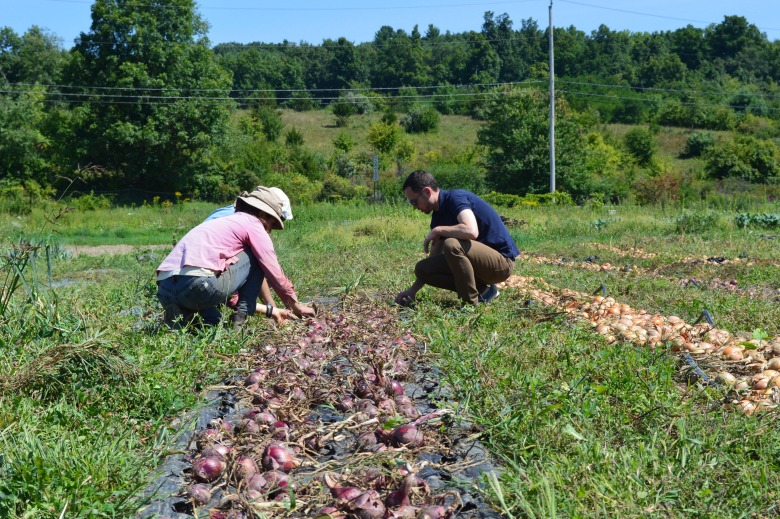A couple of weeks ago, people from all over the globe joined forces for what was the largest climate march in history. The march was also the occasion to engage a conversation about our current agricultural system that largely contributes to make the problem worse. Making agriculture greener, at least on a large scale, is one of today’s biggest challenges.
In response to the urgent need for organic and regenerative agriculture, the Natural Gourmet Institute offered for the first time this summer a certificate in sustainable farming.
A group of students, all coming from different backgrounds (some chefs, others pharmacists) but sharing same passion for food, joined this two-week intensive program to learn more about sustainable alternatives to the agricultural norm. The approach is holistic: the concept of sustainability was discussed from environmental, economical and practical prospectives in both urban and rural environments. Students learned about composting, seeding, weeding, animal husbandry, biodiversity, farm policy and more.
Students got to spend a week working on an urban farm, the Brooklyn Grange, and a week upstate on a biodynamic farm, the Hawthorne Valley Farm.
When asked about the reasons behind such a curriculum, Jay Weinstein, lead instructor from the program, underlines that urban farming, large scale organic farming and biodynamic farming are all pieces of the same puzzle. None of them is the only answer to the problem. However, they are all tools to fix the same problem. According to Jay Weinstein, the experience at the Brooklyn Grange and the one at the Hawthorne Valley Farm have two different, but still overlapping, functions: Brooklyn Grange gives the students a sense of what the future holds, while the Hawthorne Valley Farm gives them a sense of why we should hold on to the past.
If the curriculum is indeed focused on agriculture and farming, the Natural Gourmet Institute brought the conversation back to the culinary perspective. By studying sustainable farming, students and chefs gained a deeper understanding of how ingredient sourcing is an essential component of a health-supportive kitchen and in-turn how a health-supportive kitchen can play a role in creating and maintaining a healthy planet. Every evening at the Hawthorne Valley Farm, students got to cook and eat together. According to Tina, a student that attended the program, those shared meals contributed to make the program such a unique experience.



